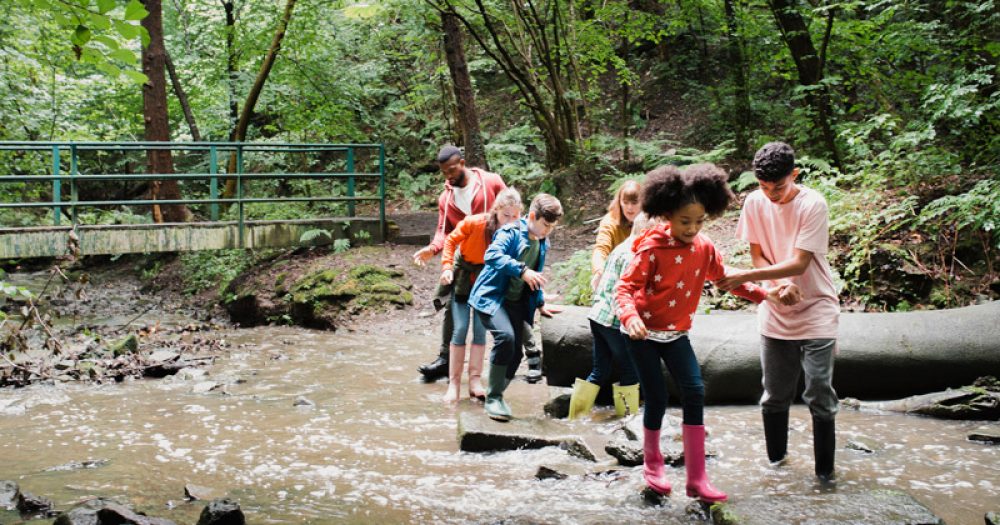A new set of “benchmarks” for schools to rate their character education against has been published by the Department for Education.
New guidance urges schools to consider “what kind of school are we?” and assess things like their curriculum and the value they place on volunteering.
Plans for the benchmarks, similar to those on careers education developed by the Gatsby foundation, were set out in February by former education secretary Damian Hinds.
Unlike the Gatsby benchmarks though, the character benchmarks are not statutory, and the DfE has been at pains to point out it does not require schools to submit data about how well they meet the benchmarks.
Ian Bauckham, chief executive of the Tenax School Trust, was appointed in May to lead an advisory group set up to create the benchmarks. The panel also included leadership union leaders, other academy trust chief executives and representatives of the third sector.
The release of the benchmarks, published in a guidance document released today, also follows a call for evidence held earlier in the year.
The guidance is intended for use by school leaders and teachers “when considering the rationale for character education and some wider aspects of personal development, and the practicalities of provision and delivery”.
It follows calls from Hinds for schools to use a new “activity passport” aimed at encouraging school pupils to ditch their gadgets and pursue “new interests” like climbing trees.
Here are the full benchmarks.
A. What kind of school are we?
How clearly do we articulate the kind of education we aspire to provide?
How do we ensure that all members of the school community (e.g. staff, pupils, parents/carers, governing body) understand and share our aims?
How effectively do we create a sense of pride, belonging and identity in our school?
B. What are our expectations of behaviour towards each other?
Are we clear on the importance of discipline and good behaviour in school life? How do we promote this understanding?
How well do we promote consideration and respect towards others (pupils and adults), good manners and courtesy?
How well do we promote a range of positive character traits among pupils?
C. How well do our curriculum and teaching develop resilience and confidence?
Is our curriculum ambitious for our pupils? Does it teach knowledge and cultural capital which will open doors and give them confidence in wider society?
Is our curriculum logically organised and sequenced, including within subjects, and taught using effective pedagogy, so pupils gain a strong sense of progress and grow in confidence?
D. How good is our co-curriculum provision?
Does it cover a wide range across artistic, creative, performance, sporting, debating, challenge, team and individual etc. so all pupils can both discover new interests and develop existing ones?
Do we make use of or promote local, national or international programmes or organisations? (e.g. uniformed organisations, Duke of Edinburgh, National Citizen Service etc.)
Is provision of high quality and does it challenge pupils and build expertise? Is participation sustained over time?
Are there ample opportunities for pupils to compete, perform etc., and is success acknowledged and celebrated?
E. How well do we promote the value of volunteering and service to others?
Are age-appropriate expectations of volunteering and service to others clearly established?
Are opportunities varied, meaningful, high-quality and sustained over time?
Do volunteering and service opportunities contribute to breaking down social barriers? Are they effective in making pupils civic-minded and ready to contribute to society?
F. How do we ensure that all our pupils benefit equally from what we offer?
Do we understand and reduce barriers to participation (e.g. cost, timing, location, logistics, confidence, parental support etc.)?
Do we enable young people from all backgrounds to feel as if they belong and are valued?
Is our provision, including our co-curricular provision, appropriately tailored both to suit and to challenge the pupils we serve?








Predictions for what will happen in next few days:
1) Headteachers instruct their teachers to record Character Education Benchmarks
2) New courses advertised for Leaders on how to record Character Education Benchmarks
3) OFSTED deny they will be inspecting Character Education Benchmarks
4) OFSTED reports show schools are put into Special Measures for not developing Character Education
5) DfE repeats promise of last year, not to introduce new initiatives that increase workload for teachers.
6) Chartered College of Teaching carry on as usual as none of this has anything to do with them, and when questioned refer enquiries to teacher unions.
7) More teachers complain about excess workload and leave the profession.
Ha! “It’s funny because it’s true” Very well put assembley tube..
Schools can make a great contribution to young people’s character by creating the opportunities for them to build resilience, develop confidence and take part in a range of co-curricular and extra-curricular activities.
What this guidance highlights is that there are many 3rd sector organisations who have programmes, skills and expertise to support schools in this endeavour.
For us at Speakers Trust, these benchmarks echo the aspirations we have for all young people to have the confidence, resilience, capability to thrive personally, in their school community and contribute to wider society.
F. How do we ensure that all our pupils benefit equally from what we offer?
Do we understand and reduce barriers to participation (e.g. cost, timing, location, logistics, confidence, parental support etc.)?
Has anyone else noticed the missing barrier to participation? Special needs and disability doesn’t get so much as a mention, but they’re a damn sight bigger barrier than ‘confidence’.
Well said Anne. I could not agree more!
I think these SHOULD be inspected and measured, but just this and nothing else. Just one addition of ‘how are we preparing our pupils for the future?” This would be a much better way allowing schools and teachers the autonomy to provide a pupil, area and community appropriate provision.